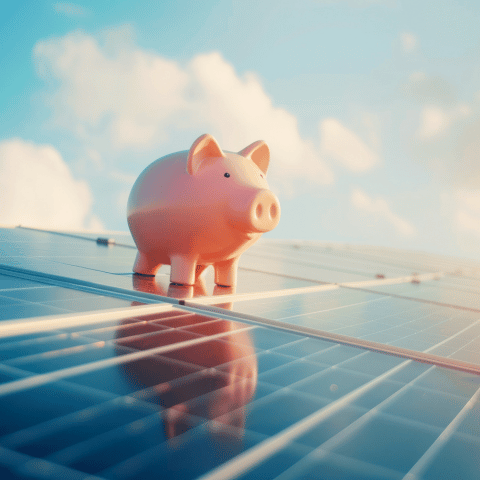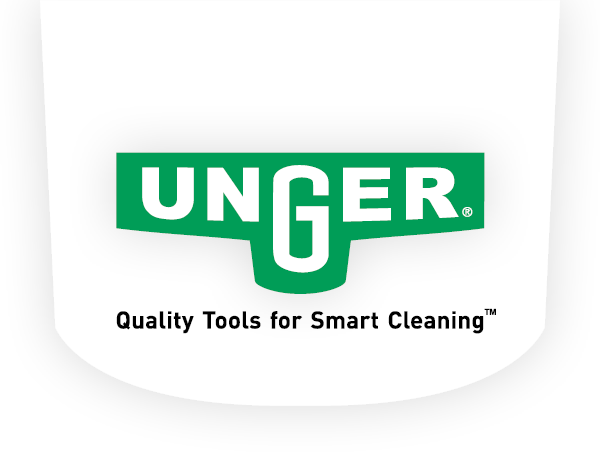NEW! Powerful Nano Filtration with Unger's HydroPower® Nano See The Product

Solar Panel Cleaning Cost Considerations
Are you considering diversifying your window cleaning business to include solar panel cleaning services? This strategy not only taps into the growing solar energy market, especially in areas with high solar panel installations, but also helps safeguard your business during market fluctuations due to: seasonal changes; economic downturns that lead to reduced spending on non-essential services; unpredictable local weather patterns; and/or entry of new competitors in the market.
As you consider this strategic move, your solar panel cleaning cost will need to take into account factors such as equipment costs, labor, competition, and the potential energy savings for clients. By navigating these considerations, you can better position yourself for success when it comes time to offer your added value to existing customers who want the efficiency and cost-effective benefits of using a single provider. You’ll also stand out competitively against window cleaning professionals who do not offer solar panel cleaning, helping you to attract new business.
Why Professional Solar Panel Cleaning Over DIY Solutions
Getting started with solar panel cleaning, you’ll need to be able to market why your services are better than do-it-yourself (DIY) options and there are several factors you can leverage. First, many solar panel manufacturers void warranties if panels are damaged during self-cleaning. Professional cleaning services are more proficient at handling panels delicately, ensuring warranty compliance.
Second, professional cleaners are more efficient and effective in cleaning given the specialized equipment and techniques that ensure thorough cleaning without causing damage. While you may be getting started with solar panel cleaning, your experience and expertise in window cleaning translate to solar panels, unlike the do-it-yourselfer. Improper DIY cleaning can lead to suboptimal results, which in turn can potentially reduce the panels’ energy output.
Professionals already utilizing pure water technology for window cleaning have another key advantage – deionized water. Pure water cleaning systems use water stripped of mineral deposits, meaning windows and glass are left spot and streak-free after cleaning. DIY methods for cleaning solar panels might include cleaning with tap water, which when dried, can leave deposits that obscure the panel surface, potentially diminishing energy efficiency.
Lastly, panel cleaning involves the added danger of working near electrical systems with electrocution being a significant risk if proper precautions are not taken. Solar panels are often installed on roofs or in elevated positions, increasing the risk of falls and the likelihood of coming near or in contact with overhead power lines. Professionals are aware of these safety risks and are better prepared to minimize the occurrence.
Impact of Size, Location, Frequency and Equipment on Pricing Your Services
When calculating what to charge for your services, there are four main factors:
- Size
The size of a solar panel system significantly impacts the cost of cleaning. The more panels a system has, the higher your costs should be due to the increased labor and time required to clean each panel. Larger surface areas may also require more cleaning solution, which adds to your expenses, unless you’re using a pure water system, in which case, no cleaning solution is required but the cost of resin bags should be considered.
- Location and Accessibility
The overall accessibility of the panels plays a crucial role in determining the cost. Easily accessible panels installed on the ground level or single-story roofs are generally cheaper to clean due to the reduced risk and minimal labor involved. Panels placed in hard-to-reach areas, installed on a steep incline, or positioned across multi-stories demand more effort and time to clean safely and effectively.
- Frequency of Cleaning
Regular maintenance can result in lower costs per visit, as you could offer discounts for consistent, scheduled cleanings. This pricing approach not only makes each visit more economical for the customer but also ensures that the panels operate at optimal efficiency. Seasonal factors also play a crucial role in determining cleaning frequency and costs. In regions plagued by heavy pollen, dust, bird droppings, or frequent storms, more frequent cleanings are necessary to maintain panel performance.
- Solar Panel Cleaning Equipment
If using a pure water system with resin bags for your solar panel cleaning services, you’ll want to keep in mind the cost of replacement bags. Since the resin bags contain ion exchange resins that remove ions (such as calcium, magnesium, and other minerals) from the water, effectively reducing the TDS, over time, these resins become saturated with ions and need to be replaced.To accompany your water fed pole, you’ll also want to have the right pole accessories, including an angle adapter that gives you the perfect angle for every application, plus the appropriate brush as to not to scratch the panel surface.
Setting Your Pricing Strategy
Once you evaluate the factors that impact solar panel cleaning costs, you can then decide on how you want to structure your service pricing:
- Per Panel Pricing: Customized depending on the type and condition of the panels and the accessibility
- Flat Rate Pricing: Adjustments based on the complexity and size of the job
- Hourly Rate Pricing: Total cost reflects the time required to complete the task
- Tiered Pricing: Accommodates different sizes of installations and ensures that larger systems benefit from incremental savings.
- Subscription or Contract Pricing: Offers regular service contracts with reduced per-visit costs
Ready to take the next step with solar panel cleaning services?
Diversifying your window cleaning business to include solar panel cleaning services is a strategic move that can significantly enhance your local market presence. By integrating this service, you can protect your business against market volatility , offer added value to your customers, and attract new clients to grow your business.
When expanding your services, it’s essential to carefully consider cost factors, including equipment investments, labor expenses, market competition, and the energy savings potential for clients. Effectively navigating these considerations will help position your business for success.

